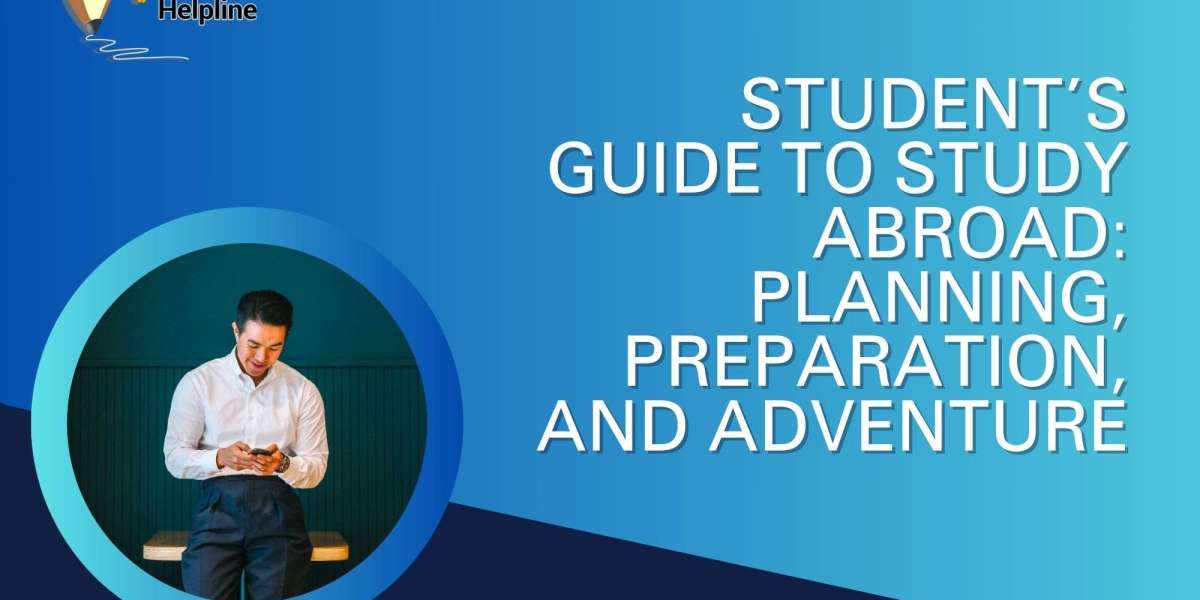Studying abroad offers students the chance to broaden their horizons, immerse themselves in new cultures, and gain a unique educational experience that can shape their futures. However, embarking on this journey requires careful planning and preparation to make the most of the opportunity. This guide covers essential steps, from planning your journey to adapting to a new environment, ensuring your study abroad adventure is as enriching and enjoyable as possible.
1. Planning Your Study Abroad Experience
Choosing Your Destination
Start by researching possible destinations and academic programs that align with your educational goals and interests. Consider factors such as language, culture, cost of living, and the quality of the educational institutions. Countries like the United States, the United Kingdom, Canada, Australia, and European nations are popular choices for international students, each offering unique cultural experiences and academic benefits.
Selecting the Right Program
Once you’ve chosen a destination, explore the range of academic programs available. Many universities offer exchange programs, study abroad semesters, and degree programs that cater to international students. Look for programs that fit your field of study and offer courses or opportunities that are difficult to find at your home institution. For example, some programs offer internships, research projects, or field experiences specific to that country, which can provide valuable hands-on learning.
Understanding the Costs and Budgeting
Studying abroad can be costly, so it’s essential to create a budget that includes tuition fees, accommodation, food, transportation, and other daily expenses. Research scholarship opportunities or financial aid that may be available for international students. Many universities offer financial assistance specifically for students who want to study abroad. Additionally, some countries allow students to work part-time, which can help cover living expenses while giving you a chance to immerse yourself in the local work culture.
2. Preparing for the Big Move
Application Process
The application process can vary greatly depending on the country and institution. Be sure to meet all deadlines, as international applications often have specific timelines. Gather the necessary documents, such as academic transcripts, letters of recommendation, a statement of purpose, and proof of language proficiency if required (e.g., TOEFL or IELTS). Double-check your application requirements for each institution, and allow time for any translations or notarizations that might be necessary.
Obtaining Your Visa
Visa requirements differ by country, so once you’re accepted into a program, research the specific student visa requirements for your chosen destination. Applying for a visa can be a time-consuming process, involving document submission, fees, and sometimes interviews. Make sure you have all required documents ready, including an acceptance letter from the university, proof of financial resources, passport, and possibly medical records. Begin this process early to avoid delays that could affect your travel plans.
Packing Essentials
When packing for your study abroad journey, balance between essentials and personal items that will make you feel at home. Important items include:
- Academic Supplies: Laptops, notebooks, and other materials you might need for classes.
- Clothing: Pack season-appropriate attire and consider the local climate. Check if there are specific cultural dress norms in your destination.
- Medical Essentials: Bring necessary medications and check whether they are allowed or available in your destination country.
- Adapters and Electronics: Different countries have different power outlets, so bring a travel adapter for your devices.
Try to pack light, as you can always purchase additional items once you arrive.
3. Making the Most of Your Adventure
Adjusting to a New Culture
One of the most exciting parts of studying abroad is immersing yourself in a new culture. At the same time, adjusting to cultural differences can be challenging. Prepare for culture shock by learning about local customs, language basics, and social norms. Being respectful of local traditions and open-minded about new experiences will help you blend in and build positive relationships.
Staying Safe and Healthy
It’s essential to understand safety precautions and health resources in your new environment. Familiarize yourself with the local emergency contact numbers, health facilities, and your school’s health services. Purchase health insurance that covers international students if it’s not already provided by your institution. Additionally, take care of your mental health; staying connected with friends and family back home and seeking support from peers can help manage feelings of homesickness.
Embracing Academics Abroad
Learning styles, classroom etiquette, and academic expectations may vary by country. Take the time to adapt to the academic system and get familiar with the way courses are structured. Participate in class, seek help when needed, and use resources like study groups, tutoring, or academic advisors. This new academic environment can encourage fresh perspectives and foster personal growth.
Building a Social Network
Studying abroad is not only about academics; it’s also an opportunity to make lasting friendships. Engage in student clubs, volunteer activities, or language exchange programs to connect with locals and other international students. These connections enrich your experience, improve your language skills, and expand your global network, which can be invaluable both personally and professionally.
Travel and Exploration
Studying abroad presents the perfect chance to explore new places beyond your immediate surroundings. Take advantage of weekends, holidays, or semester breaks to travel within your host country or nearby regions. Exploring different cities and attractions will give you a well-rounded view of your host country and create lasting memories.
4. Returning Home: Reflecting and Applying Your Experience
As your study abroad experience comes to an end, take time to reflect on the lessons you’ve learned and how they apply to your personal and professional life. Studying abroad often results in newfound independence, resilience, and cultural understanding that can positively impact your future career. Update your resume to reflect the skills gained, such as cross-cultural communication, adaptability, and global awareness, which are highly valued by employers.
Staying Connected
Maintaining relationships with friends, professors, and mentors you met abroad can keep you connected to your host country and open doors for future opportunities. You may consider joining alumni networks or international student groups to stay involved.
Studying abroad is a journey of growth, learning, and discovery. With the right planning, preparation, and openness to adventure, you can make your experience unforgettable and gain skills and memories that will benefit you for a lifetime. Embrace each moment, from the challenges to the triumphs, and return home with a broadened perspective and a world of new possibilities.







